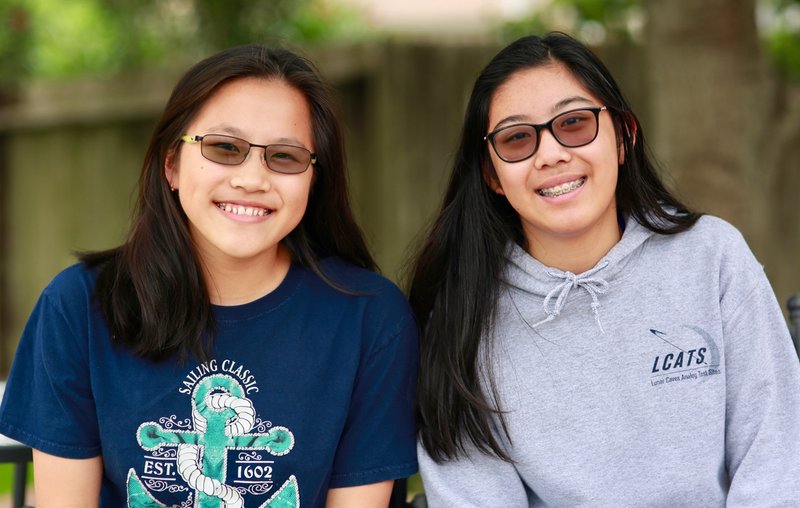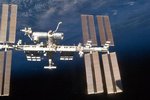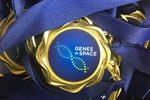GiS Spotlight: Junior Scientist Award winners Tanya and Milin
The Junior Scientist Award recognizes the top 5 outstanding submissions from middle school teams. Tanya Lertpradist (13) and Milin Tunsiricharoengul (13), students at BASIS San Antonio Shavano in San Antonio, Texas, made up one of this year's deserving winning teams. Here, they share a look into the making of their proposal, which they developed with guidance from their mentor and teacher, Jennalynn Hunnicutt. They also share a wealth of tips for future Genes in Space contestants.

Briefly explain your experiment: We wanted to test the effect of deep space on mitochondrial DNA. Since mitochondrial DNA is only passed down by women, any consequences, especially during pregnancy, would affect future generations in space.
Why did you choose to participate in Genes in Space? We’ve always been interested in space and the mystery and beauty surrounding it. The competition provided a perfect opportunity to finally act on this interest.
How did you choose your topic? We wanted to see how space affects women differently than men, as when space exploration first became possible, most if not all astronauts were male. We thought it would be interesting to explore minorities in the STEM field, especially since it is currently an extremely controversial and powerful topic. So as we searched for differences between women and men that could be vital in future space exploration, our mentor informed us that mitochondrial DNA is only passed down to offspring by the mother. This made us realize that mitochondria health in women would be important for sustaining life in outer space.
What did you gain by participating in Genes in Space? We gained experience in how to properly research and support our ideas. We also gained more knowledge about space and a deep interest in space. All the research made more and more questions pop up in our minds. We developed a passion to continue learning about space in the future.
Do you have any advice for future Genes in Space contestants? Do not procrastinate. Start coming up with ideas early on so that you aren’t scrambling for one in the last few days. Keep track of current research about space and only research topics that interest you. You should review past proposals; those can spark new ideas. When you’re ready to write your experiment, just write. Don’t check the word count or keep editing and revising. Write a whole messy blob first, then refine it and cut it down to the major points later. Also, don’t worry about writing fancy. The judges look for clear, well thought-out, and intriguing ideas, not writing skill. Sometimes, it’s best to be concise and straightforward.


